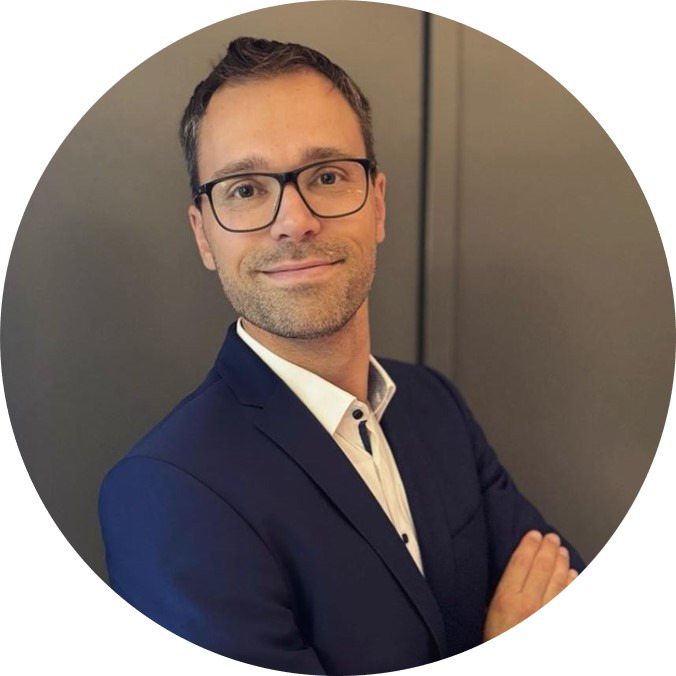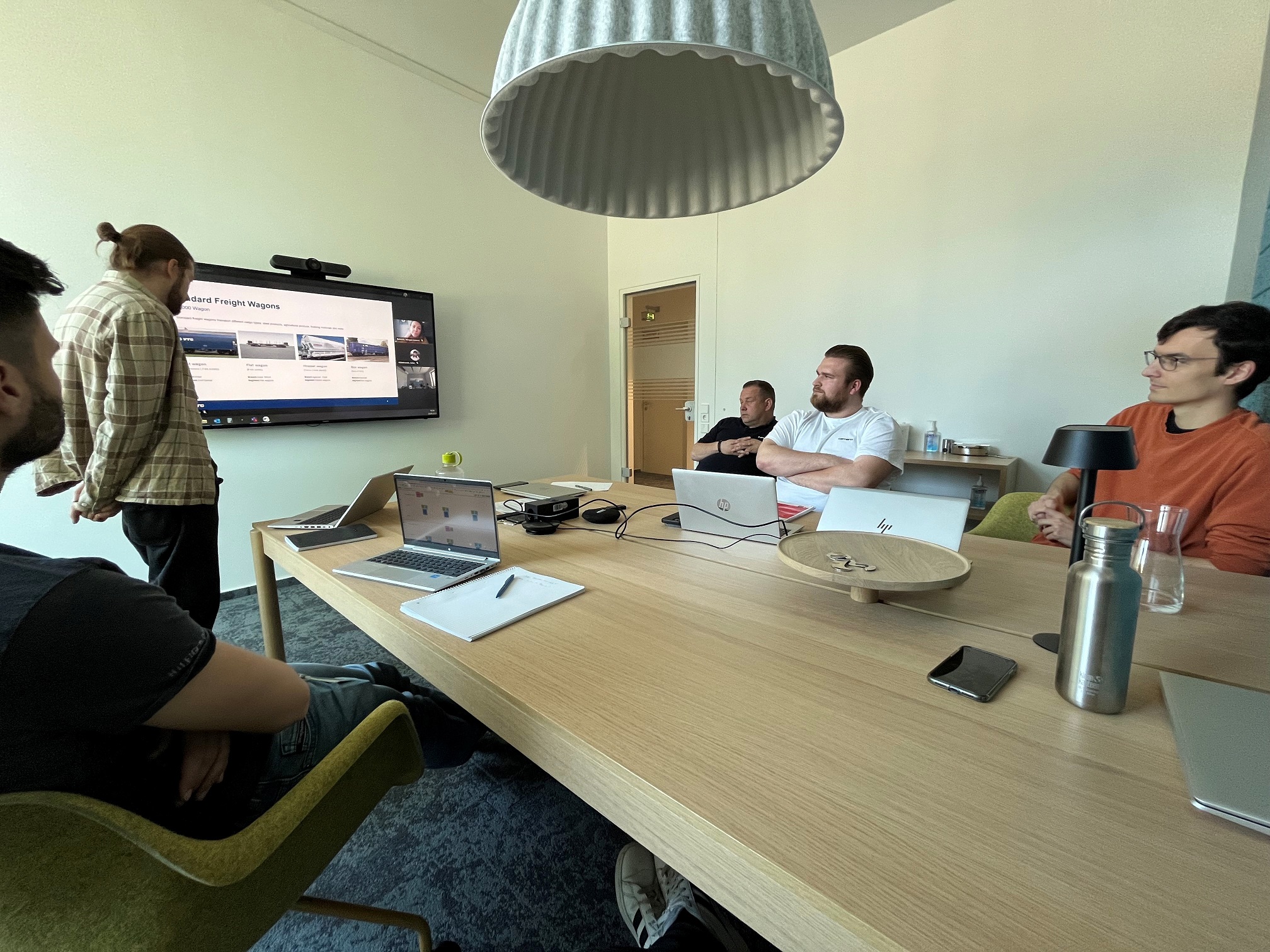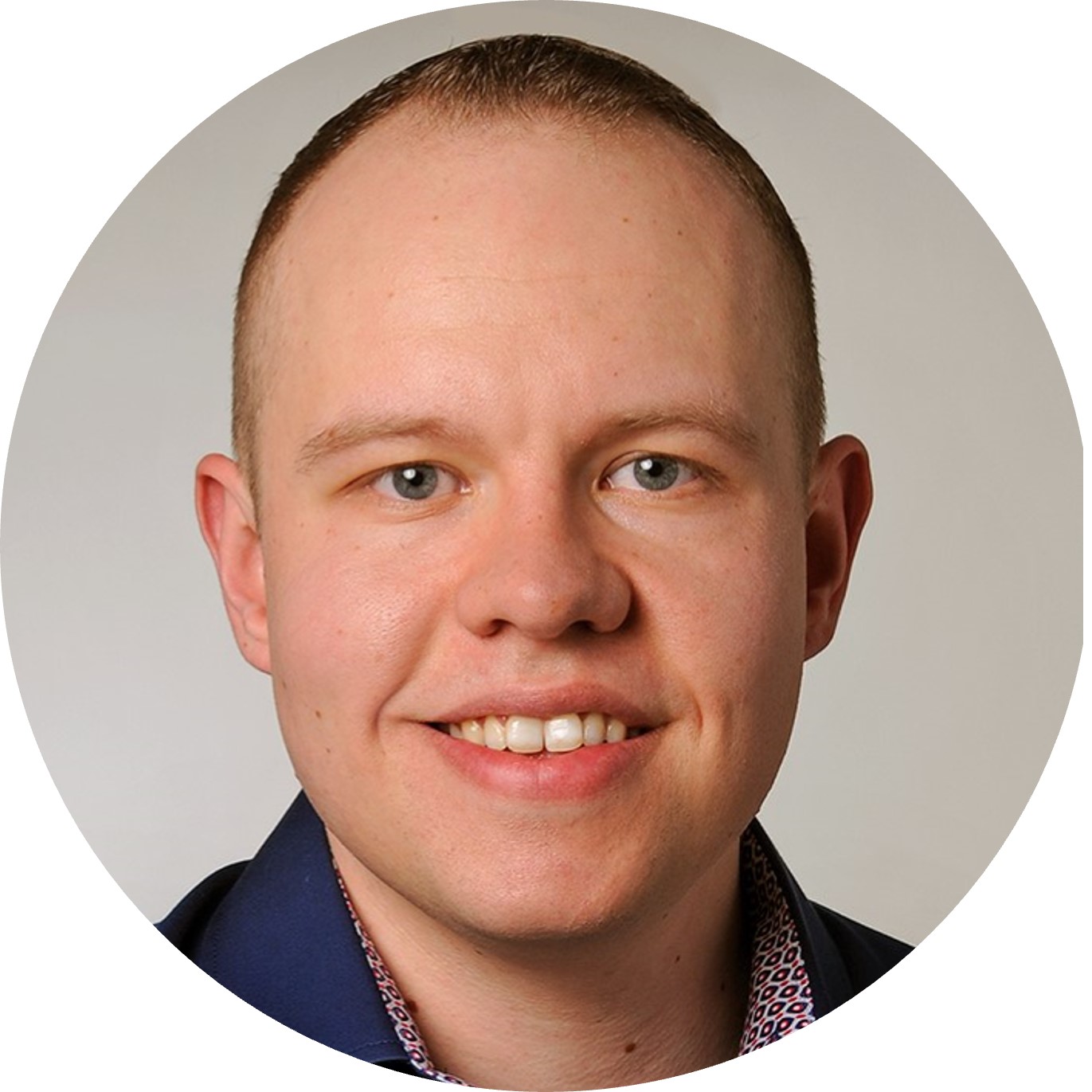Learning English during working hours: For many colleagues, the English courses offered by VTG Academy are a convenient and straightforward way to improve their skills and gain practical experience. But as is often the case, what works for one person may need to be adapted for another.
Oliver Klörs, Head of Technical Innovation & Support, came to this realization: “With the regular English courses – 60 minutes, small groups – we realized over a longer period of time that progress was limited.” The reason: the content was too general and the topics were not specific enough for the highly specialized tasks performed by Oliver and his team. In addition, the heterogeneity of the groups made learning progress more difficult. Different departments, different needs.



„We asked ourselves: How can we do more for our team?“
Oliver Klörs
“So we asked ourselves: How can we get more out of the fundamentally excellent English courses offered by VTG—but tailored specifically to our team?” The answer: a customized team course—designed “by us, for us.”
Individual, relevant – and with personal responsibility

Together with Christine Ruhnke, Training & Learning Expert in the Learning & Development team, Oliver developed a course tailored to his team that focuses on team content rather than language levels. “The idea was to offer a course where we ourselves determine real-life topics from our own field of work and increase the amount of speaking time per participant.”
This requires colleagues to engage with content from their everyday work—and to do so in English,“ explains Oliver. External trainer Gabrielle ”Gabi” Salzwedel (see below for more on Gabi’s assessment of the training concept) does not act as a traditional lecturer, but rather as a coach who guides the group.
“Actively engaging with topics from everyday work significantly increases the learning effect.“
Christine Ruhnke
“What makes it special is that the participants take responsibility,” adds Christine. “Every week, someone else prepares a contribution—such as a customer meeting or a presentation. This active engagement significantly increases the learning effect—and the transfer to everyday work is more effective.”
Not only the content has been carefully planned, but also the implementation: Six team members have been meeting in person since May, with the trainer joining virtually via Teams. A total of 17 sessions are planned.
New way, new perspective
The trainer’s initial reaction to the unusual concept was one of surprise: “Until now, courses had always been organized according to language level – now, for the first time, the focus was on content,” explains Christine. But the concept works. “Everyone communicates at their own language level at first, but they all learn together – with topics that are really relevant to them.”
Oliver is a role model for Christine: “He was extremely well prepared, structured the content, and involved the team—that’s real leadership when it comes to employee development. And that’s exactly what we need: managers who provide impetus, try things out, and adapt.”
Interested?
Would you also like an English course that is perfectly tailored to your department or team? In the training section of the VTG Academy, you can find more information and submit your request directly:
In the next step, Christine will help you set up your individual course.
Learning English in a team: Sascha reports
The team English courses at VTG not only offer a welcome opportunity to improve your language skills, but also impress with their practical structure and individual approach to the needs of the participants. Sascha Pagel (Technical Support) reports on his experiences with the new course format and shows how varied and practical the joint learning is.
Here are his personal impressions from the first course units:



How did you like the first few sessions of your team English course – and why?

Sascha: Of course, everything had to settle in at first. We had a few technical problems at the beginning because there were six of us sitting in front of a PC and connected digitally to the trainer via Teams. So we had to see how clear our sound was, how she could best distinguish between us, and whether the format was even feasible.
Once these initial difficulties had been overcome, we grew to like the course and the format more and more. We particularly like the free speaking and the technical background, as it is very relevant to our working day and we have to deal with the topics in advance. The course is not just aimed at small talk, but always has a professional focus, which helps us to answer technical questions in our day-to-day work without hesitation.
Have you been able to apply anything from the course directly to your everyday work? If so, what exactly?

Sascha: The format provides a very good place, a safe space, so to speak, to try things out. Everyone is allowed to make mistakes and receives constructive feedback from the other participants. This gives you the confidence to feel comfortable using the language, even if your pronunciation isn’t perfect. Above all, you lose your fear of making mistakes.
These points are also evident in everyday working life – you hardly even think about it anymore when a meeting is held in English. I also find the direct feedback from colleagues very helpful, as you can pick up some great tips here and there and work on your own strengths and weaknesses. For example, one participant recommended speaking more slowly to be better understood. The regularity of the weekly sessions also has a training effect: it makes it easier to switch to English and find the right words more quickly.
“Team courses offer many advantages”
We asked: Trainer Gabi Salzwedel explains the advantages she sees in conducting team courses and how she rates the content-oriented course concept.


What role do you play in designing and delivering English courses at VTG?

Gabi: As a senior and organizing teacher, I am responsible for course design—in close cooperation with HR, managers, departments, and participants. I also organize all placement tests, interviews, and final exams.
My tasks also include coordinating the courses and background processes. I select suitable teachers, prepare them, and ensure consistent quality assurance with ongoing content adjustments. In addition, I teach courses myself, primarily for participants with little prior knowledge as well as for executives and management.
Oliver and his team are breaking new ground with their customized team course. What advantages do you see for participants?

Gabi: Team courses offer many advantages. The content is practical and can be applied directly in everyday work. Learning together strengthens team spirit and helps overcome inhibitions when speaking, precisely because the group is familiar with each other. Another advantage is that everyone has a similar professional background. This allows vocabulary and practice scenarios to be selected specifically for meetings or email communication, for example.
Mutual responsibility within the team also leads to higher motivation and regular participation. Such courses are also efficient for the company – both in terms of time and cost. And last but not least, they promote cooperation in projects and cross-departmental tasks, which anchors learning success in the long term.
How do you rate the concept of grouping course participants according to content rather than language level?

Gabi: I think this concept is very successful. It promotes practical and goal-oriented learning, which is much more motivating than pure grammar exercises. When the topics are relevant to the participants, they are more willing to actively participate.
In addition, different language levels also have advantages, for example through peer learning. Participants learn from each other, help each other, and benefit from mutual exchange. The focus is clearly on practical application rather than linguistic perfection, which is often much more important in professional communication.


